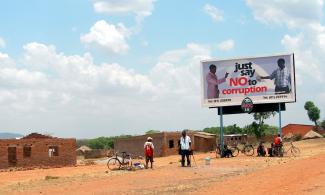
I wonder how many of us Africans consider ourselves to be corrupt. I wonder how many of those that we consider to be corrupt, consider themselves to be so? What constitutes corruption anyway and why is it ostensibly so deep-rooted in Nigeria, for example!?
I do not consider myself to be corrupt. I have worked hard all my life, and achieved a reasonable reputation for integrity, if not much else. However, I've never been in the position to take advantage of a political or nepotistic windfall. If that opportunity arose, would I refuse?
googletag.cmd.push(function() { googletag.display('content1'); });
Would I refuse, if a well-placed friend or relative in Government offered me a job, a contract of supply, or a position of power? If I accepted, how corrupt would it be?
If I gained a position of power and then offered a friend or relative a job, a contract of supply, or a position of power of their own; how corrupt would that be?
To be honest, I fear that as a culture we all live in eternal hope and expectation of precisely such a circumstance. Our cultural bias is to expect to benefit from "who you know". When we do, we don't consider it corrupt. When we don't, we do.
googletag.cmd.push(function() { googletag.display('content2'); });
The origins of the verb to "corrupt" speak to rot and decay. I would suggest that in political terms corruption must relate to the misuse of power and therefore rot, decay, debasement of the system in force. If, by ones actions, one is undermining or circumventing the system, one is corrupting it.
If we can find a way to acknowledge who we are culturally then maybe, just maybe, we will be able to find a way to leverage our deep-seated cultural values for the common good.
googletag.cmd.push(function() { googletag.display('comments'); });